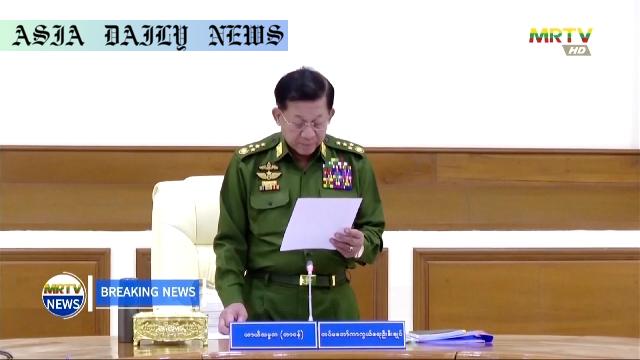Myanmar coup: Officials extend state of emergency by another six months as the country grapples with humanitarian and social crises.

Introduction
Saturday marks four years since the military coup in Myanmar, a country now embroiled in devastating humanitarian and political turmoil. On February 1, 2021, the military took control, overthrowing the democratically elected government, and plunging the nation into conflict. Since then, an unrelenting state of emergency has sustained a brutal regime that continues to face growing resistance and international scrutiny.
The Immediate Aftermath
After the coup, Myanmar descended into chaos as citizens protested the military takeover. Pro-democracy activists carried out nationwide demonstrations, met with harsh and often violent crackdowns by the junta. Entire communities became battlegrounds as ethnic minority groups joined forces with the pro-democracy movement against the military. Human rights groups report that over 6,000 civilians have been killed in the resulting violence, with countless more injured or arrested.
Humanitarian Crisis Deepens
The coup’s consequences extend beyond conflict. According to the United Nations, the number of displaced individuals in Myanmar will exceed 4.5 million in 2025, a nearly 30% increase from 2024 alone. Refugees face dire living conditions, with limited access to food, clean water, and healthcare. Widespread devastation underscores an ongoing humanitarian crisis exacerbated by the military’s continued grip on power.
Prolonged State of Emergency
The junta has extended the state of emergency multiple times since 2021, with the latest extension announced on Friday for an additional six months. Officials have promised elections in 2025, but skepticism abounds. In October 2023, a national census was conducted ostensibly to prepare for a transition to civilian government. However, many view these actions as efforts to solidify the junta’s control rather than restore democracy.
Rising Global Concern
Global attention is focused on Myanmar’s deteriorating situation. The international community, along with various human rights organizations, has condemned the junta and called for a resolution to the conflict. Sanctions imposed by countries such as the United States and European Union have sought to pressure the military, yet meaningful change remains elusive.
Ethnic Conflicts and Widening Divides
Myanmar has historically struggled with ethnic divisions, and the coup has exacerbated these tensions. Armed minority groups have ramped up resistance against the regime, further destabilizing the country. Reports of mass killings, destruction of villages, and targeted violence against ethnic populations highlight the devastating toll the conflict has taken. Myanmar’s unity is stretched thin as societal fractures widen.
Hope Amid Despair
Despite the oppression, brave citizens and groups continue to resist the military regime. Through protests, advocacy, and international partnerships, there remains a glimmer of hope for a peaceful resolution. However, the road to democracy is fraught with challenges that require sustained global attention and local efforts to overcome.
Conclusion
Four years after the coup, Myanmar’s future remains uncertain. With staggering civilian casualties and millions displaced, the country is at a breaking point. The military’s continued dominance only deepens the crisis, leaving the international community and Myanmar’s citizens searching for pathways to peace and resolution. The world must not look away as Myanmar struggles for freedom and stability.
Commentary
Reflecting on Myanmar’s Turmoil
The situation in Myanmar is a sobering reminder of how power struggles and political agendas can lead to immense human suffering. In the wake of the 2021 coup, the nation has spiraled into a humanitarian crisis that demands urgent attention. The staggering loss of over 6,000 lives and the displacement of millions underscore the gravity of the situation.
The Role of the International Community
Global involvement is crucial in addressing the crisis. The sanctions and statements issued by foreign governments and international bodies are steps in the right direction, but they need to be followed by actionable measures. Aid for displaced populations and diplomatic efforts to mediate the conflict must be prioritized to alleviate suffering and promote stability.
The Resilience of Myanmar’s People
One of the most inspiring aspects of this crisis is the resilience shown by Myanmar’s citizens. From pro-democracy activists to grassroots organizations, the determination to resist injustice is inspiring. Their courage sends a powerful message about the strength of human spirit even in the darkest of times.
The Road Ahead
While the road to peace may seem distant, there is hope. With increased international support and localized efforts to curb violence and open channels for dialogue, Myanmar can begin to heal. Public awareness is also vital—keeping the world informed and engaged can contribute to a better future for the nation. There is much to be done, but enduring hope is the foundation upon which positive change can be built.


